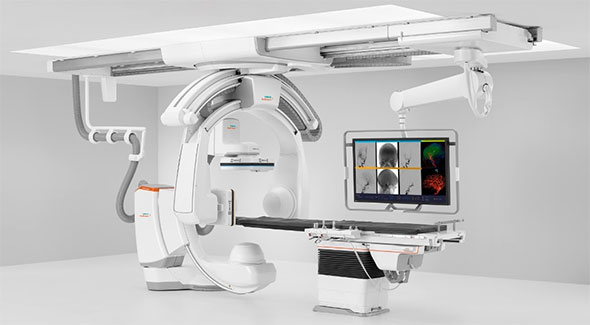When it comes to stroke, every second counts – that’s why knowing the signs of a stroke and what to do if you think you’re having one is critical. Once you arrive at the hospital, it’s also important that you get the diagnosis and intervention you need as soon as possible. That’s because experts say ‘Time is Brain’ – meaning for every second wasted during or after a stroke, you can lose critical brain function.
What is a Stroke?
A stroke occurs when an artery that leads to or is inside the brain becomes blocked or damaged. A clot can block the artery or an artery can burst. This reduces or completely blocks blood flow to an area of the brain. In the South, stroke is the third leading cause of death and the number 1 cause of disability.
Enhanced Care for Stroke Patients at WakeMed
This month, WakeMed launches a new systemwide telestroke program that will provide our patients at all seven emergency departments throughout the region with 24/7 access to almost immediate neurological evaluation and consultation.
Stroke patients will undergo neurological evaluation within 10 minutes of their arrival – which will help with the clinical decision-making needed to get stroke patients the interventions they need as quickly as possible. When it comes to stroke, time is brain, so this ability to speed up the evaluation and diagnosis processes means stroke patients will inevitably have better outcomes.

At WakeMed North Hospital, a new teleneurology program will provide stroke and general neurology patients with access to the daily rounding and consultation from fellowship-trained vascular neurologists. This allows our hospitalist and eICU physicians to partner with highly-trained experts in neurology for real-time evaluation and consultation (Neurology rounding and consult are already available at our Raleigh and Cary Hospital locations.) This higher level of care means patients can get the care they need and recover at WakeMed North Hospital, rather than being transferred to other facilities.

WakeMed Cary Hospital recently introduced a new life-saving procedure and state-of-the-art equipment designed to help patients with emergent stroke cases. Our new neuro thrombectomy program allows experts from Raleigh Neurosurgical Clinic and Raleigh Radiology to perform mechanical thrombectomy, the process of manually removing a blood clot from a vein or artery. This allows WakeMed Cary Hospital to provide a higher level of stroke care than ever before, eliminating the need for transferring patients to other facilities.
We all need to know the signs of stroke. This simple knowledge can help save a life and prevent stroke-related, life-long disabilities.
Learn BEFAST
A great way to remember the signs of stroke is by using the acronym BEFAST. Here’s what it means:
B – Balance: Sudden loss of balance or coordination
E – Eyes: Sudden vision change/trouble seeing
F – Face: One side of the face droops when the person smiles
A – Arm: One arm drifts down when the person raises arms
S – Speech: Person’s speech in slurred, slow or strange
T – Time: If you or someone around you is experiencing one, some or all of these symptoms, BEFAST and call 911 immediately for emergency medical assistance.
Do not drive yourself or the person to the hospital. Paramedics can begin to help stop a stroke in the field. This is critical. The longer the brain is starved of oxygen, the greater the chances of death or permanent disability.
Many hospitals, including WakeMed, have expanded the FAST acronym that was previously used to BEFAST because issues with balance and vision – particularly when these issues occur suddenly – are common stroke symptoms.






You must be logged in to post a comment.